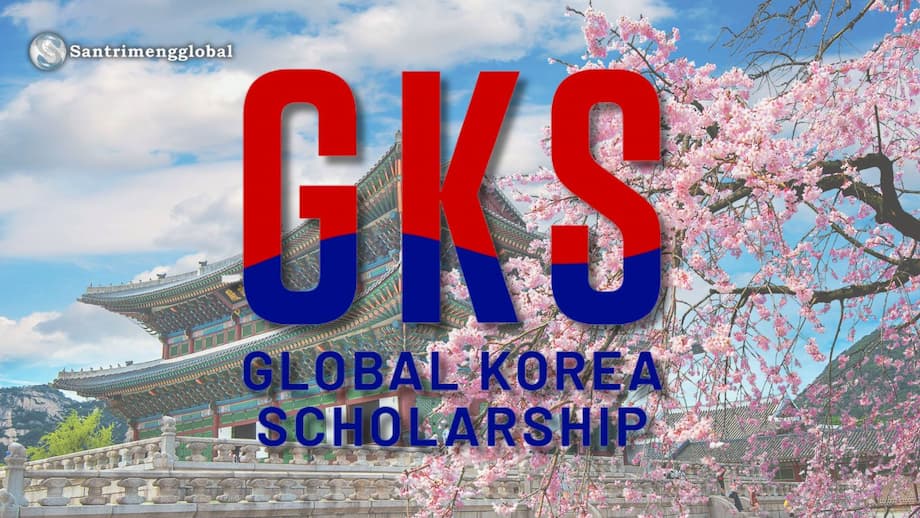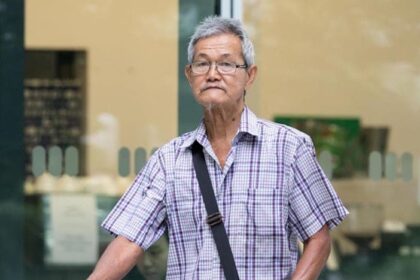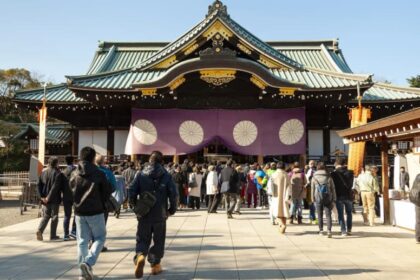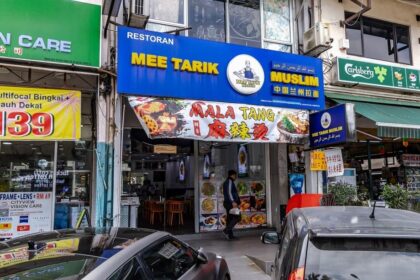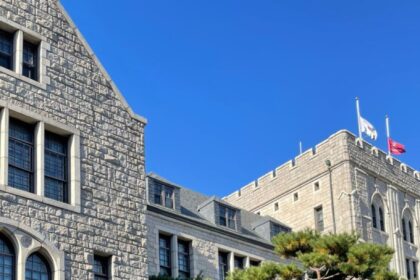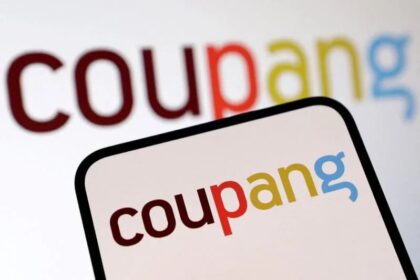Applications open for 2026 Global Korea Scholarship for undergraduates
South Korea has set the dates for the 2026 Global Korea Scholarship undergraduate intake and introduced a major convenience update. The Ministry of Education and the National Institute for International Education have confirmed that applications will be accepted from September 15 to October 31, with submissions made through a new online system on the Study in Korea website. The undergraduate program plans to select 280 recipients from 71 countries, according to the official announcement carried on the government portal Korea.net. Final results are scheduled for January 2026.
- Applications open for 2026 Global Korea Scholarship for undergraduates
- What is the Global Korea Scholarship
- Key dates and the new online application system
- Eligibility and age limits
- Tracks and quotas
- What the scholarship covers
- Countries added and where to study
- Tips for a strong application
- Timeline after selection
- Key Points
This is the first time the undergraduate application is fully online. Until now, most candidates either hand delivered documents to Korean embassies or mailed packets directly to universities. Moving to a digital platform aims to simplify the process, reduce mailing risks, and standardize screening across countries. It should also help applicants meet deadlines without courier delays.
Students can apply through two pathways called tracks. The embassy track runs on a shorter calendar, from September 15 to September 30 according to the Ministry of Education, and requires candidates to follow their local Korean embassy’s instructions. The university track runs from September 15 to October 31 and involves applying directly to participating institutions via the same online portal.
The scholarship covers full tuition and fees for a year of intensive Korean language study, provides roundtrip airfare and settlement support, and offers a monthly allowance and academic incentives. A separate grant of 300,000 won is available for those who achieve Level 5 or higher on the speaking test of the Test of Proficiency in Korean. The Global Korea Scholarship, widely known as GKS, has become one of Asia’s most competitive government scholarship programs for international students.
What is the Global Korea Scholarship
GKS is South Korea’s flagship government scholarship for international students. It funds degree programs at Korean universities and supports a structured year of language training for most recipients. The program, managed by the National Institute for International Education, was established in 1967 and has awarded degrees to 19,502 students from 161 countries. The goal is to build lasting academic and professional networks between Korea and the world while nurturing future leaders who understand Korean society, language, and industries.
The undergraduate intake for 2026 will select 280 students. A separate graduate round typically opens near the start of the calendar year, and thousands of graduate scholars study in Korea each year. For undergraduates, the journey often includes language training in 2026 followed by the degree program starting in 2027. Many graduates of GKS remain connected to Korea through research, business, diplomacy, or creative industries, adding to a growing global alumni network.
Key dates and the new online application system
Application windows are now clearly defined and centralized through the Study in Korea platform. The overall undergraduate window is September 15 to October 31. The embassy track window is shorter, from September 15 to September 30, which means applicants who plan to go via their country’s Korean embassy should prepare early. The university track runs until October 31. Final announcements for successful undergraduate candidates will be made in January 2026.
The online system replaces in person and postal submissions. Applicants create an account, complete electronic forms, and upload scanned documents. Expect requirements such as passports or national identity documents, high school graduation certificates or proof of expected graduation, transcripts, recommendation letters, personal statements and study plans, and proof of language proficiency where relevant. Check time zones, since the portal will close at a set time in Korea. The new platform is hosted on the official Study in Korea website run by the Korean government. The main site is available at Study in Korea. The Ministry of Education has also posted a public notice outlining the 2026 timeline and track details on its English site at english.moe.go.kr.
Digital submission offers clear advantages. It reduces risk of lost or incomplete mailings, gives applicants a single dashboard to follow status updates, and creates a uniform process across countries. Still, applicants should carefully prepare files in the formats and sizes required by the portal and allocate time for scanning, translation, and notarization where needed.
Eligibility and age limits
The 2026 undergraduate call follows a familiar eligibility framework. Applicants must have at least a high school diploma or be on track to graduate before enrollment. Both the applicant and their parents must be foreign nationals with no Korean citizenship. The maximum age is 25 as of March 1, 2026. Candidates who already hold a bachelor’s degree or a higher qualification are not eligible for the undergraduate program.
Academic performance requirements apply and are set out in the official guidelines. Institutions and embassies typically look for strong grades, consistent achievement, and clear motivation for study in Korea. Applicants should not assume that minimum criteria alone will secure selection. Competition is intense, and reviewers expect a strong study plan, clear reasoning for university and major choices, and evidence that the candidate can adapt to academic life in Korea.
Health requirements and documentation vary by program and country, but a basic medical assessment is normally required after selection. Country specific embassy instructions may add further criteria or document formats, so candidates should verify local guidelines early.
Tracks and quotas
GKS offers two main application routes. The embassy track allows applicants to compete for quotas allocated to their country through the local Korean embassy. Embassy track panels usually conduct initial screening and interviews before recommending candidates to the National Institute for International Education for final selection. Within the embassy route are three categories: the general track open to all Korean universities, a dedicated option for overseas ethnic Koreans, and R GKS that supports study at regional universities outside major metropolitan areas.
The university track involves applying directly to designated universities through the Study in Korea portal. This route includes a customized curriculum option designed for industry and academic cooperation and an associate degree program focused on junior and technical colleges. The university track lets applicants target specific universities or majors, which can be helpful if a candidate already has a strong academic fit and a clear choice of institution.
Quotas differ by country and by track and are published each year in the official guidelines. Some embassies receive more embassy track seats, while certain universities may have larger or more specialized university track allocations. Applicants should match their strengths to the route that gives them the best odds of selection.
What the scholarship covers
GKS is a full support package designed to reduce financial barriers for qualified international students. The scholarship includes full tuition payments to the host institution, intensive Korean language instruction for most undergraduates, roundtrip airfare, and a settlement allowance upon arrival. A monthly stipend is provided to help with living costs. Academic incentives are available for high performers during the degree program.
Language proficiency is an important component. Most undergraduates spend their first year in Korea studying Korean at a language institute designated by the scholarship. Students who already hold high proficiency may be exempt from this requirement. Those who achieve Level 5 or higher on the speaking test of the Test of Proficiency in Korean receive an additional grant of 300,000 won. High proficiency also helps students adapt quickly to lectures, group work, and campus life, especially outside Seoul.
Scholarship rules are detailed in the yearly guidelines, including allowable leave, dormitory options, and conditions for progressing from language study to the degree program. Recipients are expected to maintain good academic standing and to follow program regulations. Universities may offer extra support such as mentoring, tutoring, and research opportunities, which scholars can leverage to build experience and networks.
Countries added and where to study
The 2026 undergraduate round will select 280 students from 71 countries. According to reports citing the National Institute for International Education, five countries are being added to the partner list for this cycle: South Africa, Madagascar, Syria, Czech Republic, and Cuba. Applicants should verify whether their country participates in the 2026 round and which track and quotas apply. The full list of eligible countries and the detailed guidance are posted on the Study in Korea website.
Scholars can study at a wide range of institutions, including leading research universities and specialized regional schools that offer strong programs in engineering, information technology, life sciences, business, arts, and social sciences. Korean universities have expanded English language instruction in many programs, although Korean remains the main teaching language for numerous majors. A potential highlight for 2026 and beyond is the widening of options at science and technology campuses, illustrated by initiatives such as Postech’s plan to admit more international undergraduates, which adds to the ecosystem that GKS scholars enter after their language year.
University selection should be driven by academic fit. Prospective scholars should explore department pages, laboratory interests, capstone projects, internship options, and placements of recent graduates. GKS allows a mix of choices, so candidates can list universities that match their profile rather than only chasing brand names.
Tips for a strong application
A competitive application is thorough, on time, and aligned with what selectors look for. The move to an online portal helps with logistics, but content quality remains decisive. The following steps can help applicants present their case clearly and professionally.
- Start early and map the calendar. Embassy track closes on September 30 and the university track on October 31. Plan backward and build a checklist.
- Study the official guidelines. Read the track specific instructions on the Study in Korea website, including file formats, naming rules, and notarization needs.
- Tailor your study plan. Explain why Korea, why the chosen field, and why the listed universities. Show how past experience and future goals align.
- Secure strong recommendations. Ask teachers or counselors who know your work well. Provide them with your resume and draft study plan to write focused letters.
- Prepare clean scans. Use clear, color scans of transcripts, diplomas, ID documents, and test scores. Translate and notarize documents where required.
- Check country specific rules. Embassies often have extra instructions, such as file order or consent forms. Do not assume all countries have the same list.
- Demonstrate language readiness. If available, upload English proficiency scores or Korean test results. Language skills do not replace eligibility rules but can strengthen an application.
- Practice interviews. Embassy track applicants often face interviews. Be ready to discuss your academic interests, adaptability, and understanding of life in Korea.
- Use the portal carefully. Save drafts, verify uploads, and confirm submission. Keep copies of all files and receipts.
- Mind time zones and cutoffs. Submit early to avoid last minute technical issues that can block final submission.
Timeline after selection
Successful candidates will see their names on the January 2026 announcement. After that, they typically submit a formal pledge to accept the scholarship, complete medical checks, and begin visa preparation. Embassies and the National Institute for International Education usually conduct pre departure orientations that explain arrival procedures, language training, housing, and scholarship rules.
Most undergraduate scholars then attend a designated language institute in Korea for about one year. During language study, recipients receive a monthly allowance and focus on building the proficiency needed for university coursework. Those who already hold high proficiency may be exempt from the language year and receive the additional Korean speaking grant if they meet the test requirement. After language training, students start their degree program at the university listed in their final placement. For the 2026 cohort, that typically means beginning degree studies in 2027.
It is helpful to budget time for visa issuance, immunizations, and document legalization. Scholars should also plan for the academic calendar in Korea, which may differ from their home system. Orientation at the host university will introduce advising staff, course registration, dormitory rules, and campus support services.
Key Points
- Applications for the 2026 undergraduate Global Korea Scholarship open September 15 and close October 31.
- The embassy track window is September 15 to September 30. The university track runs until October 31.
- Applications move fully online via the Study in Korea portal. No embassy walk in or postal submissions are needed for initial applications.
- The program will select 280 undergraduate scholars from 71 countries. Final results will be announced in January 2026.
- Eligibility includes being under 25 as of March 1, 2026, holding or expecting a high school diploma, and both applicant and parents being foreign nationals. Applicants with a bachelor’s degree are not eligible for the undergraduate round.
- Benefits include full tuition, a year of Korean language study for most students, roundtrip airfare, settlement support, a monthly allowance, and academic incentives.
- An extra 300,000 won grant is available to those who achieve Level 5 or higher on the TOPIK speaking test.
- Tracks include the embassy route with general, overseas ethnic Korean, and R GKS options, and the university route with customized curriculum and associate degree programs.
- Five countries were added to the partner list for the 2026 cycle: South Africa, Madagascar, Syria, Czech Republic, and Cuba.
- The official guidance, country lists, and track quotas are posted on the Study in Korea website and should be checked before applying.


